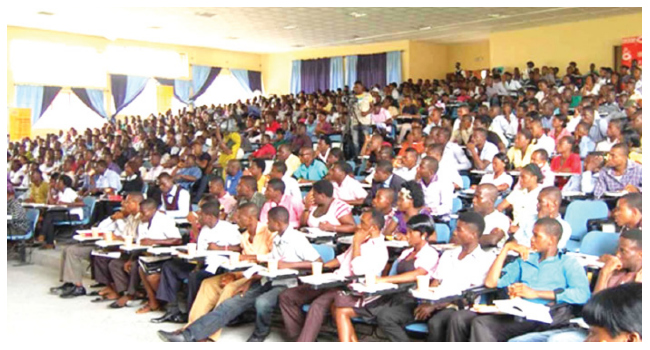
Nigeria’s President Bola Tinubu launched on August 14 the Nigerian Education Loan Fund, emphasizing the importance of education in the fight against poverty and in achieving national development.
Launch this student loan program, President Bola Ahmed Tinubu said he believes that education is the best weapon to fight poverty in any society.
“Without education there is no vision, without education there is no development, without education you cannot even defeat poverty, insecurity and abuse in a society,” said President Tinubu.
For the federal authorities, this initiative marks an important step in the fight against financial barriers to education and in empowering students to pursue their academic aspirations.
At the University of Abuja, students are divided over the initiative and many questions remain unanswered. Some think that the conditions are too harsh and prevent students from poor families from benefiting from the loan.
“The real question now is how practical is this program, how effective is it, how much can it help a student. If you look at some of the criteria, they’re a bit voluminous and if your objective is really targeted at certain low-income families, how will they be able to meet certain criteria?” believes law student Joseph Gratia.
To date, more than 110,000 loan applications have been received.
“I visited the website I was given and saw the list of criteria that are listed to be able to get this loan and from these criteria, I can tell you categorically that this loan is nothing but demagoguery. It’s not for ordinary people. It’s not for ordinary young people,” says Hope Onykwere, a linguistics student who went directly to the site to find out more.
The President has approved 35 billion Naira for the launch of the program, targeting 70,000 applicants for a start. According to statistics, there are over 100,000 students in private universities, compared with over 2,500,000 in public universities, indicating that the private sector accounts for less than 6% of Nigeria’s student population.
For decades, tuition fees have been kept low to encourage enrolment in a country where many are poor and the illiteracy rate is very high.
